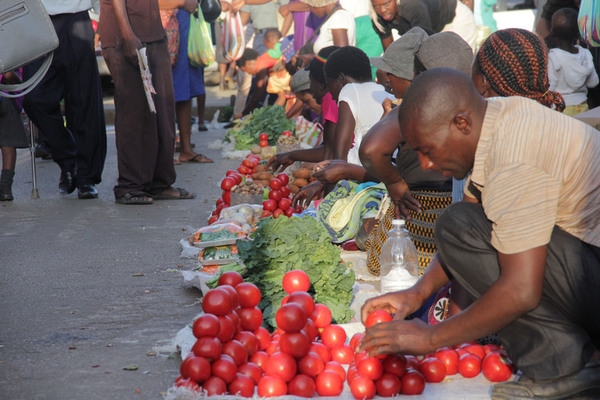Industry experts meeting this week for a virtual discussion focused on resetting, retooling and restarting regional integration in Africa in the wake of the COVID-19 pandemic, underscored the importance of putting small scale traders at the heart of any initiatives.
The joint webinar, organized on Tuesday by the African Development Bank (AfDB) and Korea Customs Service (KCS), looked at service sectors, e-commerce, digital platforms and value chain development as critical factors for accelerating trade and investment in Africa against the backdrop of the global pandemic.
The webinar was delivered in three sessions, moderated by Stephen Karangizi, Director, African Legal Support Facility; Dr. Stephen Karingi, Director at Regional Integration and Trade Division of UNECA and Acha Leke, Senior Partner at McKinsey
History has demonstrated the success of countries and businesses that seize new opportunities during times of crisis, said Sukhwan Roh, Commissioner of the Korea Customs Service. “The COVID-19 pandemic has completely changed health and livelihoods of individuals across the world in less than a year,” he said. “Korea wishes to share all the achievements in system enhancement utilizing new technologies with African countries.”
The workshop’s audience heard how regional integration is increasingly central to the continent’s future economic prospects and to attracting foreign direct investment. The African Continental Free Trade Agreement, (AfCFTA), already ratified by 30 countries, is expected to come into effect on January 1, 2021.
Uniting all 55 member states of the African Union, the pact will create a market of more than 1.2 billion people, including a growing middle class, and a combined gross domestic product (GDP) of over $3.4 trillion
COVID-19 has deepened pre-existing trade frictions within the continent yet offers important growth opportunities and great stories of innovation and highlights the importance of protecting Africa’s place in local value chains, said Anabel Gonzalez, Senior Fellow, Peterson Institute for International Economics, with the need to “put small scale traders at the heart of the effort”.
She urged governments to strengthen national agencies to provide support to small traders.
“AfCFTA creates a new trade and integration reality…integrating unequal partners across the continent,” said Trudi Hartzenberg Executive Director of the Trade Law Center (TRALAC). Trade facilitation enjoys specific focus within the AfCFTA, with digital, e-payments, and e-commerce particularly important, she added, citing a 2020 WTO report that emphasized education and healthcare as fundamental to industrialization.
From the outset, the African Development Bank has lent strong support to the AfCFTA, financing the set-up of its secretariat as well as supporting member countries with technical assistance to comply with a range of AfCFTA regulations, said Bank Vice President, Infrastructure, Private Sector & Industrialization, Solomon Quaynor, in his introductory remarks read by Abdu Mukhtar, Bank Director, Industrial and Trade Development Department.
Still, Quaynor warned, post-crisis recovery efforts are likely to be slow. “The AfCFTA will not in one dramatic swoop alter existing commercial and economic realities on a vast scale. However, through strategic measures and the right investments, policy frameworks and political backing, intra-African trade will be enhanced”.
African countries innovate to enhance local value chains
Presentations provided examples from Ghana and Zambia of strategies the private sector can adopt to leverage the AfCFTA within the context of the pandemic.
Ghana previously imported most of its Personal Protective Equipment or PPE, but, since the pandemic, the government galvanized 14 local garment firms to manufacture PPE. These firms now produce 1,000 items daily, according to Ghana’s deputy trade minister, Robert Ahomka Lindsay. The development has created 10,000 jobs.
“Traditional value chains have been challenged… it made us realise that we cannot rely on those value chains”, Lindsay said.
Some of the worst-affected sectors in Africa such as tourism, aviation and education, had shown resilience, for example, in the food industry, which harnessed e-commerce for marketing during the pandemic, noted Kenneth Baghamunda, Dir. General, Customs and Trade, East African Community Secretariat.
Zambia’s success with cashless payment solutions at its border and other innovations since COVID-19 was another example of favourable results.
“We need to see which value chains need to be developed and we need to interconnect our policies with the right institutional framework,” he said. Source: APO




